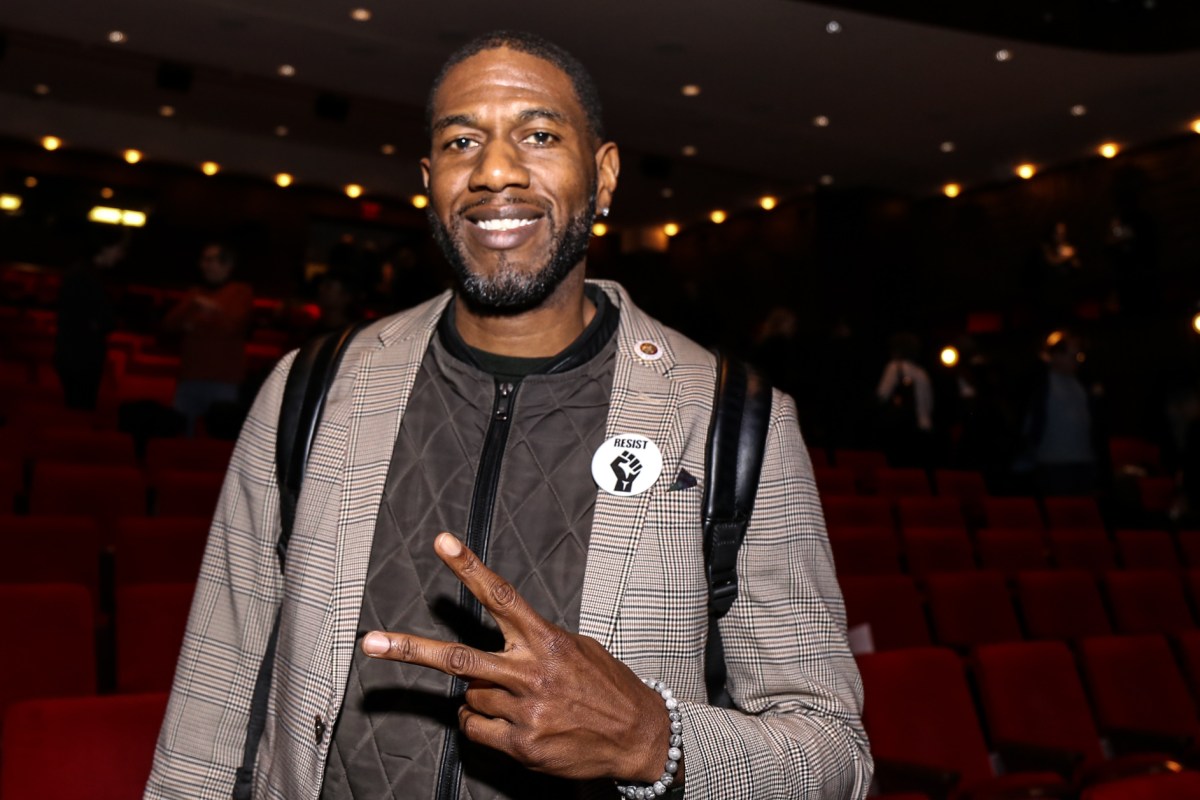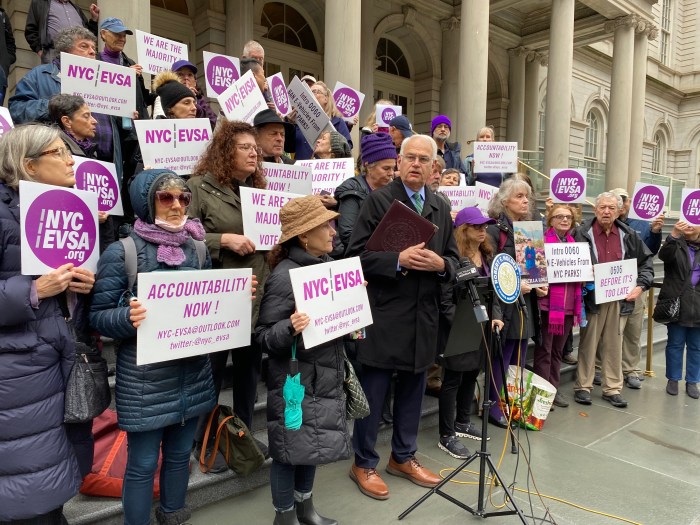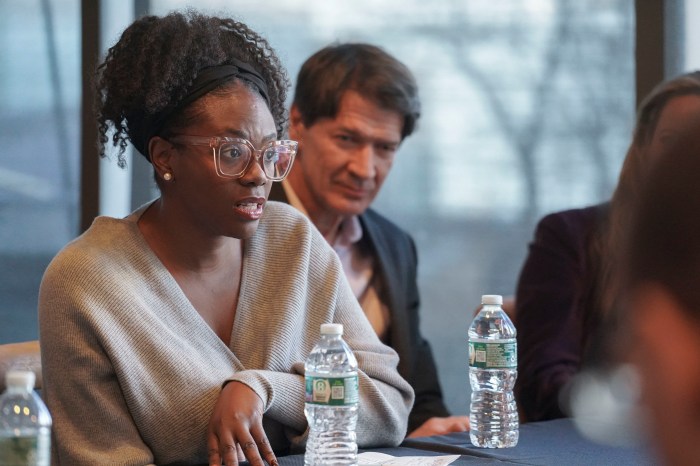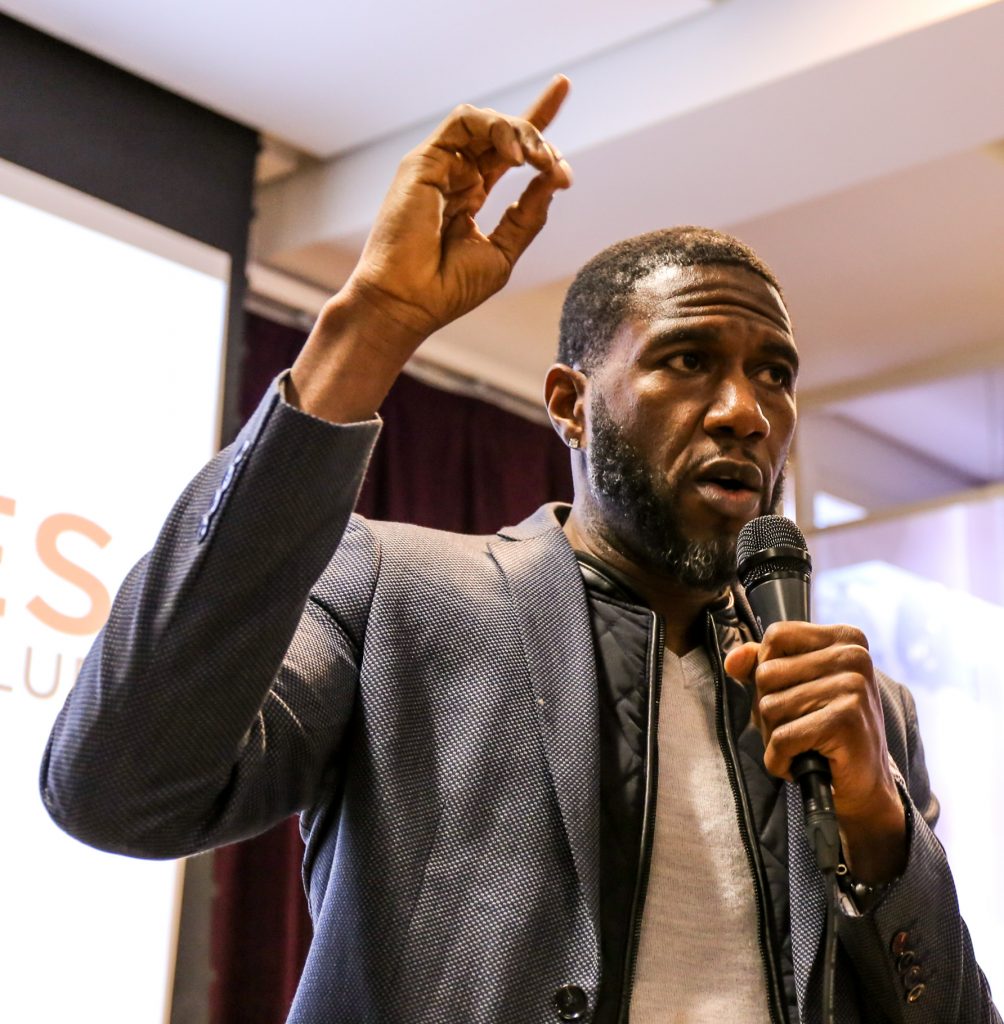
BY LINCOLN ANDERSON | Updated Thurs., Feb. 28, 2:30 p.m.: Brooklyn Councilmember Jumaane Williams cruised to victory in a crowded special election for public advocate on Tuesday night.
According to unofficial New York City Board of Elections results, with nearly 97 percent of scanners counted, Williams had received more than 33 percent of the vote.
The only Republican in the nonpartisan election, Eric Ulrich, took second with 19 percent of the ballots cast. Former City Council Speaker Melissa Mark-Viverito finished third, garnering 11 percent of the tally. Coming in fourth was Bronx Assemblymember Michael Blake, with more than 8 percent of the vote.
Meanwhile, Ben Yee, a Democratic state committeemember and East Village resident, scored some solid Downtown support, winning the endorsement of the storied Village Independent Democrats political club. He ran on an ambitious reform platform of increasing New Yorkers’ civic engagement, but mustered only 2.6 percent of the vote.
A total of 17 candidates vied for the open seat in one of the most jam-packed elections in recent memory.
Although the office doesn’t hold much actual power, it’s first in line to the mayor: If the mayor can no longer serve, the advocate becomes mayor. And, in particular, it’s become a launching pad to higher office, including mayor for Bill de Blasio and, more recently, state attorney general for Letitia James.
Considered one of the frontrunners — if not the frontrunner — Williams was seen as “the progressive candidate” in the race. Blake was considered “the establishment candidate.”
It was a low-turnout election, with only around 400,000 turning out to vote.
This past September, Williams gave a strong challenge to incumbent Kathy Hochul for New York State lieutenant governor, losing the Democratic primary by only a few percentage points. That race — in which he ran on a ticket with Cynthia Nixon — helped raise Williams’s name recognition for the public-advocate special election.
In the advocate race — with a field with so many candidates — his recently snagging The New York Times’s endorsement was also a major boost.
The advocate’s seat opened up after James won election last November to become attorney general in the wake of Eric Schneiderman’s resignation from office in the face of accusations he had physically abused several woman.
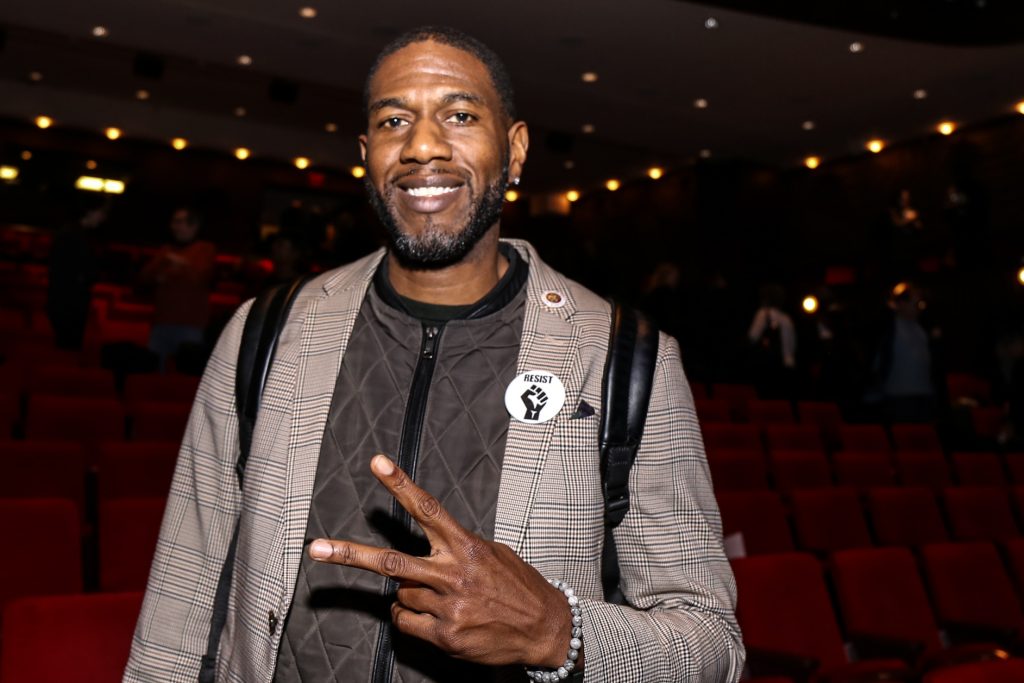
The public advocate’s main role is to be an ombudsman for complaints and concerns about city government. He or she can do investigations, introduce legislation and generally use the position as a bully pulpit on a range of issues. The advocate can also certainly be a thorn in the mayor’s side — which Williams could well be. Though in his post-election remarks, he said he intends to work with the mayor.
Speaking at a forum of statewide candidates at P.S. 41 last May, Williams told the crowd that, if elected lieutenant governor, he would be a foil to Governor Andrew Cuomo.
Williams stressed that, if elected, he would not be “a rubber stamp or parrot” for the governor.
“For the past nine years, I’ve been trying to cause as much as trouble as humanly possible,” he said.
“I am a community organizer by training,” he said then. He noted he is the child of immigrants from Grenada, and that his brother had been an undocumented immigrant. He also said he has Tourette’s syndrome.
Williams was arrested last year for protesting the detention of immigrant-rights activist Ravi Ragbir after Ragbir was detained during one of his regular check-ins with Immigration Customs and Enforcement down by the courts.
In both of his campaigns, Williams called for “universal rent control,” among other things. He said he also supports a “racial impact study” being done whenever a major rezoning is planned, to gauge how current residents will be affected. In general, affordable housing has been one of his top issues.
Among other candidates for public advocate who caught the interest of local voters was Upper Manhattan Councilmember Ydanis Rodriguez, who finished with 6 percent of the vote. Advocates for the Small Business Jobs Survival Act supported him since he is the long-stymied bill’s prime sponsor and has pledged to bring it up for a full vote on the Council floor.
On the other hand, the bill’s advocates were dead set against Mark-Viverito because she blocked the bill from coming up for a vote during her Council speaker tenure.
David Eisenbach, a Union Square-area resident and Columbia professor made the S.B.J.S.A. one of his key issues, but finished with only 0.8 percent of the vote.
Nomiki Konst, known to many from her appearances on “The Young Turks,” but without much of a New York City base, got 2.3 percent of the vote. One of Konst’s campaign planks was a call for a $30 minimum wage — double the current rate.
Ulrich, the lone G.O.P.’er, also stood out from the field for opposing the de Blasio administration’s plan to close Rikers Island in favor of building new jails in the boroughs, including one slated for near the courts in Lower Manhattan. People simply don’t want jails in residential neighborhoods, he stressed.
Upper West Side Assemblymember Daniel O’Donnell, the openly gay brother of Rosie O’Donnell, brought lots of experience to the race but scored only 2.9 percent of the vote.
Queens Assemblymember Ron Kim, the group’s most outspoken critic on the mayor’s plan to scrap the standardized admissions test for specialized high schools, also got about 2.9 percent of the vote.
Because the race was nonpartisan, the candidates all ran on their own customized tickets.
Williams, for example, ran on the “It’s Time Let’s Go” ballot line. Mark-Viverito’s ballot line was “Fix the M.T.A.” Blake’s was “For the People.” Ulrich ran on the “Common Sense” line. O’Donnell was the “Equality for All” candidate. Konst ran under the rubric “Pay Folks More.” Yee’s was “Community Strong.” Rodriguez’s was “Unite Immigrants.” Kim’s was “No Amazon.”
A primary election for public advocate is coming up soon, in June.
Although he recently rejoined V.I.D. after two decades, Arthur Schwartz, the Village’s Democratic district leader, supported Williams, not Yee, and was in fact Williams’s campaign co-counsel.
“At P.S. 41, which has eight election districts, Jumaane got about 45 percent of the vote,” Schwartz said. “I sent out a mailing for Jumaane late last week.”
He said Williams finished with 42 percent in the 66th Assembly District, Yee got 5.8 percent, and O’Donnell — who was endorsed by Assemblymember Deborah Glick — got 5.7 percent.
“Jumaane is not your run-of-the mill politician,” Schwartz added. “He is passionate. He is vibrant. He is humble. He knows how and when to build coalitions and when to say, ‘Enough is enough.’ I made sure he knows how widespread his support was throughout our Assembly district.”



